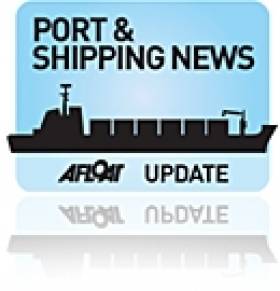Displaying items by tag: Refuse derived fuel
#WicklowPort – As a snapshot into the shipping activity of Wicklow Port, this morning saw the departure of Lehmann Baltic (1997/2,820grt) with a cargo of refuse derived fuel (RDF) bound for Bremen, writes Jehan Ashmore.
RDF is mostly made of combustible components from municipal waste such as plastics and biodegradable waste which are shredded using waste converter technology to be processed as a source for fuel.
At almost 90m, Lehmann Baltic is a Dutch owned general cargo vessel operated by Wagenborg. She was loaded with the RDF cargo alongside the Packet Pier, one of two commercial quays operated by Wicklow Port Company.
The port is approximately only 35 miles from Dublin is experiencing a modest increase in traffic not seen since 2008, with exports of recycled timber and logs as well as glass cullet. The principal import is timber products which during the boom years were frequently shipped from Scandinavia to meet the demands of the construction industry.
Vessels generally small coasters and general cargo ships berth alongside north and south quays of the port, which as previously reported on Afloat.ie is currently undergoing dredging.
The Jenny T is carrying out the works within the port where the River Leitrim flows into the harbour which has not been dredged since 1998. The spoil is removed by the Sligo registered vessel and dumped a few kilometres off the harbour.
Further south in Arklow, Co. Wicklow's only other large port, is also to undergo dredging operations next month.
Likewise of Wicklow, as previously reported, such work has not been conducted in the port for some 15 years.





























































